- Home
- Tim Lebbon
Ten-Word Tragedies Page 14
Ten-Word Tragedies Read online
Page 14
‘Bur!’
I step out of his range and stare down at him. He’s a pathetic, blubbering mess, the blood painted black across his neck and his clutching hands and dribbling out of his fat lips and over the peppery stubble coating his chin and throat.
‘I was a person, Kenneth. A person with hopes and dreams, and you killed that. You killed it in our children, and you killed it in me. I don’t even know why you did it. We didn’t take anything from you. We weren’t hurting anything. But you turned us all into objects because it made your life easier. And the problem with doing that is that objects don’t get to have feelings. So I don’t feel anything anymore. I don’t feel anything right now. Nothing at all.’
He mumbles something that sounds like ‘Bitch’ as heard from underwater and a thousand miles away.
‘I probably earned that,’ I admit.
He struggles and paws at his throat and quivers a bit, and then he’s done. He’s looking at me when it happens, and it’s fascinating, how his eyes change in that moment.
‘Kenneth?’
Nothing.
I hurriedly unlatch a few more stall doors and prepare myself for the tricky bit.
I even clear my throat before I scream, and it’s a good one, the kind that makes your whole face ache.
I keep screaming and screaming, and the horses thrash and kick in their stalls, and doors begin to pop open as terrified beasts dart out into the night, anxious to escape…well, me.
I throw myself onto Kenneth, hugging his head to my chest like a loving wife might when finding her beloved stabbed to death. It’s an odd new sensation, feigning tenderness for him, but I’m sure to get the blood all over my sleeves and hands to hide the bit that splattered out when I stabbed him. My only worry is that one of the panicking horses will kick me, but they behave just beautifully, bolting out of their stalls and scattering into the night like a dream, their frantic hoof prints covering up, I hope, any evidence that Kenneth and I were alone here. I put a hand down and notice, for just a moment, that blood and sand mixed together feel exactly like I imagined they would, the first time I saw that postcard.
Men appear carrying flashlights, white beams flickering up and down the aisle. They shout things like, ‘Hey!’ and ‘What happened here!’ and ‘Oh, the horses!’ as if that’s somehow useful, the silly things. Some of them take one look at me and run to catch the horses instead. I just cradle Kenneth’s heavy head to my bosom and summon up tears, wailing and kissing his cheeks and subtly feeling for a pulse that definitely isn’t there.
‘Ma’am! What happened here?’ someone says, and I look up into the face of a strange man in dirty clothes, some sort of worker.
‘I don’t know! We were just going for a walk so he could show me his favorite horses, and some hooligan came out and stabbed him and took his money!’
‘What did he look like?’
Several more men gather around us, and I look down and rock back and forth to make it more believable. Isn’t this what women do? Women who love their husbands? Women with real feelings? Don’t they miss what was lost?
I shake my head.
‘He was just a man,’ I say, letting my voice go husky. ‘It’s so dark. I couldn’t see. But he was just a man.’
When the police show up, I tell them the same thing.
And they drive me back to the hotel.
Because I’m nothing but a scared old woman.
I live in a little cottage on Pompano Beach now. I sold our old house, gave away the tired furnishings. The life insurance policy my father set up the day I married Kenneth paid well. My little Ford Falcon is gone, and I drive Kenneth’s mustang whenever I need to go out. Carla and Ben visit sometimes and bring their chubby children to the beach, where we play in the surf and peel our own shrimp and laugh as much as we want to. Kenneth is buried back in Fleetwood, Pennsylvania, in the plot he bought for us both, back when plots were cheap. But I won’t be buried beside him, won’t sleep under the cold snow. I told Carla I wanted to be buried down here, in the sand. I have already set down my roots.
The warm climate suits the thing that I’ve become.
‘HOWARD STURGIS AND THE LETTERS AND THE VAN AND WHAT HE FOUND WHEN HE WENT BACK TO HIS HOUSE’
PAUL TREMBLAY
HOWARD STURGIS RECEIVED THE FIRST perplexing letter from CIRCE GROUP in early June. He was in the middle of final exams week. For the weary students, summer was no longer an impossible dream. For Howard, the end of another academic year was a clanging toll of a bell that would one day soon stop ringing. Howard taught mathematics at Bishop Fenwick, a Catholic High School in Danvers, Massachusetts. Having officially retired from public school teaching three years prior, Howard supplemented his modest retirement income by teaching part-time at the private school. Howard was sixty-eight years old and was a slight, bird-like fusspot, but a kind one. He couldn’t have been more out of touch with youth culture and his students’ world, and to their delight he used earnest phrases like, ‘Isn’t that wonderful?’ after computing a derivative or integral. Howard arrived at school by 4:30AM each morning (thereby avoiding any traffic on his commute) and he spent the bulk of his before-school hours helping other teachers’ students, and by help we mean he would do their homework problems for them. He lived alone in a small ranch-style house on a wooded lot. He wore wool suits that he dry cleaned three times a year. Howard told his newest colleagues nothing of his family or of his past. Suffice to say his joys and regrets were perhaps equal, but never felt equal.
Dear Howard,
Parcel received, but no letter. Please advise.
Regards,
Terrance Norton
CIRCE GROUP
The second time Howard received a letter from the group was in early July. This letter was slid directly under his front door. He found it upon returning home from SAT tutoring. His student had aspirations of being a collegiate swimmer but she needed to add at least fifty points to her math score, or so she was told by three coaches from three different schools in three different time zones. She wasn’t sure if she wanted to swim in college but she couldn’t tell her parents that given the collective money and time spent and their emotional investment. And she couldn’t tell her parents that she did not like working with Mr. Sturgis; frankly, his body odor lingered in the room like an angry ghost, his pale skin was too dry, his thin black hair was too black, and his hands were too long, and she didn’t like how after presenting a problem he turned his head and smiled in a way she interpreted to mean his intelligence was a gift he was sharing with her and she may not be worthy of it.
Dear Howard,
My CFO would kill me for putting this in writing, however, the astounding contents within your parcel (the old commercial jingle, ‘a little dab will do you’, comes to mind) changed everything for us. We’re more than willing to discuss some form of remuneration or collaboration and/or many other -ations. Help us help you help us more. We want to work with you. We, to be plain, want more. Please advise.
With Deepest Regards and Respect,
Terrance Norton
CIRCE GROUP
A third letter arrived at the school on September 17th. Part of him was convinced students were playing a prank given the prurient ending of the letter. The previous winter a senior created a playful Wikipedia page outlining Howard’s fabricated biography (Howard was the first television weatherman and creator of green-screen technology; Howard created a mathematical model of a rat upon which the government tested with mathematical viruses; Howard financially supported a children’s hospital in Nicaragua; Howard holds the world record for number of clementines consumed within twenty-four hours; Howard discovered an 11th and 12th dimension when he was thirteen) and enumerated some of his more outré political theories. Howard proselytized a conspiracy-laden brand of politics whenever the opportunity presented. The students humored him as long as it resulted in a truncated class or a completed homework assignment or a better quiz grade. The faculty, in general, did not hu
mor him, save for one man who had been at the school for fifty years and was now only allowed in classrooms to proctor study halls.
Dear Howard,
The time, I’m sure, is not ideal given the start of another academic year, but in another more important sense, the time has never been more perfect. The time has never been more now. You’ll be astounded at our uses and applications, the discoveries and advances and designs and implementations and successes and even our failures have been…interesting. To wit: The Libido Rub (poorly named, I agree) was a terrible, disastrous idea, not because it didn’t work, but because it worked too well and our test subjects, well, they tested themselves on all manner of objects, animate and inanimate. Live and learn. Given any new discovery, where do our lizard brains tend to go at some point, am I right?
Regards,
Terrance Norton
CIRCE GROUP
Howard thought of the letters as entities unto themselves, as existing without and beyond whomever their claimed author Terrance Norton might be, as being capable of forethought, decision, and deception. He knew it was silly to think that way, but he also knew that this peculiar paranoia might, somehow, be closer to the truth. Despite the letters’ entreaties, none of them contained contact information, or even a return address. The postmark was within the same state but beyond that, he was unable to glean more information. Internet searches for Circe Group came up empty. He was surprised by the number of men named Terrance Norton who lived in the New England area and he didn’t find any usable or actionable information from afternoons spent gawking at social media posts and pictures of spouses, kids, and pets belonging to the collective of thoroughly average Nortons. On his monthly call to his younger-by-fifteen-years sister Gretchen (she lived in California and had seven children spaced two years apart and they all, unfortunately, looked like her husband Gary; his facial features were the exaggerated and elongated balloons of a child’s drawing made flesh), Howard deviated from his usual script of asking for an itemized update on the doings and goings on with his nieces and nephews and then breathlessly sharing his latest and greatest political conspiracies, to which she was not a sympathetic ear (Gretchen once hung up on him when he told her she should discontinue any and all vaccines for her children). During this call, he asked his sister if she knew any Nortons, average or otherwise. He did not explain why he asked.
Dear Howard,
Words are failing me, aren’t they? Failing us? I understand. I do. WE do. Yes, we—I do speak for a WE, for the GROUP. If corporations can be people too—to quote a contemporary American politician—then corporations can learn and dream and love and evolve, and we can evolve more quickly because we are a WE, we are evolving together, and it’s a more focused evolution. What takes nature millions of years to achieve we’ve achieved in a blink. And we achieved this because of the miracle within the parcel you sent, Howard. You’re to blame! (joking, of course)
I’ve searched for inspirational quotes to send you but nothing fits. See the enclosed photo of our most recent and most astounding R&D project.
Evolutionarily Yours,
Terrance Norton
CIRCE GROUP
The photo (printed on card stock) featured, of all things, a large blue van in an otherwise empty, maroon-colored show room. It was the blue that Howard fixated upon and the unnaturalness of its naturalness. Howard looked out his front bay window, through the glare of the sun and the dusty glass, at his own car, a small, tan electric hybrid of which he kept detailed mileage statistics. He looked back at the photo and the van’s swooping and smooth lines, no corners or edges or angles, as though it was molded and shaped instead of being constructed, and he was lost again in the van’s azure blue, which shined like a beetle’s carapace. There was something unmistakably biological about the color.
Howard brought the photo with him to school but he didn’t show it to anyone else. Instead of eating lunch with faculty or helping students, he stayed in his classroom with the door shut and the pull-shade closed over the door’s portal glass and stared at the photo. He swore that the blue color changed (ever so slightly, enough to keep him looking, staring, even running a fingertip across the photo) not only with the light of the room but with his mood changes. The photo, in his mind, was proof that he wasn’t being pranked by his students.
The thing of it was Howard had no memory of mailing a package or ‘parcel’ to CIRCE GROUP, although he could not be sure he hadn’t mailed them a letter of some sort. Howard spent his waking hours at home (hours that he would describe as lonely, but not desperately so) scribbling and then mailing (both the postal and electronic variety) all manner of consumer complaints, I’m-on-to-you accusations, and promises of boycott with dizzying detailed financial forecasts of the affect of his purported boycott to a diversified group of businesses, corporations, investment firms, health insurance providers, manufacturers, and even one chain of (purportedly) organic supermarkets, all according to the whims and rages of a political Reddit he followed and read religiously but to which he did not ever contribute. It was possible that one of his letters intended for Corporation X had been bureaucratically forwarded to this CIRCE GROUP. But a package? When was the last time he mailed a parcel? He would’ve remembered that, wouldn’t he? Howard was unable to imagine what might’ve been inside the parcel in question. His mind only conjured images of empty boxes, ranging in size from shoebox to large enough to hold a refrigerator.
Howard,
A peek at some of the current inner workings. The goal is to go to market (I love that quaint phrase, don’t you?) ASAP. Branding our R&D projects is not our strong suit. I’ve argued (in vain) that we need help from focus groups and/or advertisement and PR firms despite our need for a certain level of, shall we call it, strategic secrecy. Alas…
This is confidential (and why we do not communicate via phone or computer) and I trust you’ll keep it so.
Respectfully and Confidentially Yours,
Terrance Norton
CIRCE GROUP
Below are my comments on the early go at proposed catalog copy. We cannot send copy to design or the digital team until there is final copy approval first (and waiting on word of a possible letter from the president to include as well). And I’m afraid we’re far away from the final. We can/have to do better.
Terrance
With all the talk of innovation and discovery and evolution, Howard had to admit he was disappointed they were preparing to sell, essentially, a van. However, after careful and deliberate, well, deliberation, Howard wrote a letter to the group. More of a note really. He didn’t use a full 8.5x11 piece of paper, as though using a full sheet was committing to something he wasn’t prepared to commit to. He used one of his palm-sized reminder-notes, a gift from his 1998 BC Calculus class. There were only maybe twenty sheets left from the stack that had originally been thicker than a dictionary. The gray sheets had yellowed at the edges. All manner of mathematical symbols and operations danced across the heading like a child’s fabled dream of sugarplum fairies.
By responding Howard feared he would be further entangling himself. As he composed the note he feared saying too much or too little. That said, he’d never seen anything like the photo of the van, or more specifically, the van’s color (which, on this morning, had a metallic green twinkle within the blue, and he wasn’t sure but it seemed like the shape of the van’s front end was different, more sleek, more daring; it was a smile, or a knowing smirk, a curled lip on one of the matinee idols he secretly adored as a teenager), and coupled with the barrage of strange letters, he no longer thought of his current situation as being a random harassment, as being a mistake. He instead thought perhaps this (whatever this was) was an opportunity for—he wasn’t sure what. If nothing else his answering the group with a note of his own would prolong these out-of-the-ordinary days of intrigue, which would be more than welcome. The phrase this might be your last opportunity rang in his head until a quieter voice, one that had been appearing more frequently as of
late, whispered, this could be your last hurrah. He decided to be to the point, professional, worldly of the ways of business and marketing and not a dusty, fearful academic, to be confident but not overly so, to sound like he was already in the know.
Dear Terrance,
I agree that WunderKar as a vehicle name doesn’t work. I suggest the GROUP search Greek mythology, as you did for the name of your company, or search other myths and folk tales for inspiration.
Sincerely,
Howard Sturgis
Howard left his note on his own front stoop. He placed it inside a plain envelope and the envelope inside a sealed plastic sandwich bag as he wasn’t sure how long the letter would be outside and there was rain in the ten-day forecast. He considered calling in sick to school the next day (it would’ve been for the first time in over a decade) to wait and watch but there was no guarantee his note would be retrieved while he was home. He considered purchasing some form of security surveillance for above his front door and allowed himself to indulge in that scenario before dismissing it with a tinge of misplaced regret.
Three days later, on a Thursday, upon returning home from school, his note was gone, and was replaced by a new letter, the longest one yet, which was nestled in a padded envelope.
Dear Howard,
When the history of CIRCE GROUP is written, you will get a dedication—no, you will get your own chapter. New employees and trainees will forever be extolled to be like Howard Sturgis though your genius and generosity—your spirit—will never be duplicated. Tee shirts and bobble-head dolls will be fashioned in your likeness. I don’t think a statue in one of our courtyards would be out of the question. And a fountain; your statue within the fountain and the children of our employees will throw pennies and make wishes in your name. Nations will fall and nations will rise and as our group endures and grows our corporate songs will be forever sung in your name.

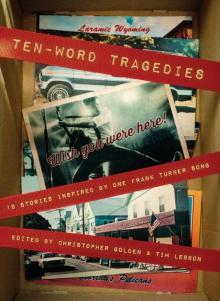 Ten-Word Tragedies
Ten-Word Tragedies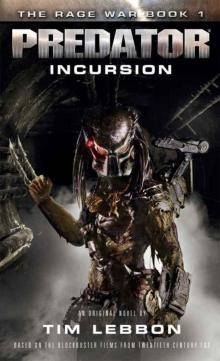 Predator: Incursion
Predator: Incursion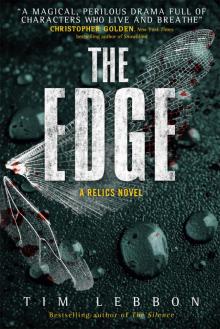 Relics--The Edge
Relics--The Edge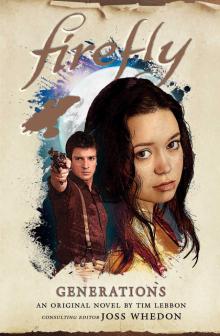 Firefly
Firefly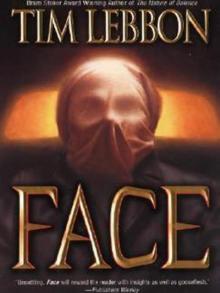 Face
Face Generations
Generations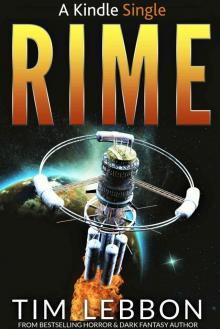 RIME (Kindle Single)
RIME (Kindle Single) Fallen
Fallen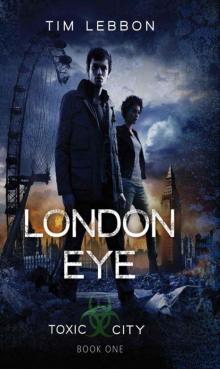 London Eye tc-1
London Eye tc-1 Kong: Skull Island
Kong: Skull Island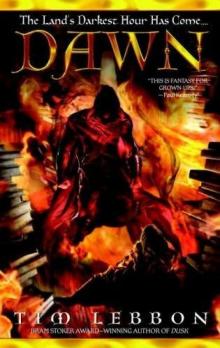 Dawn n-2
Dawn n-2 Into the Void: Star Wars (Dawn of the Jedi)
Into the Void: Star Wars (Dawn of the Jedi)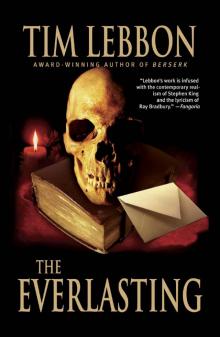 The Everlasting
The Everlasting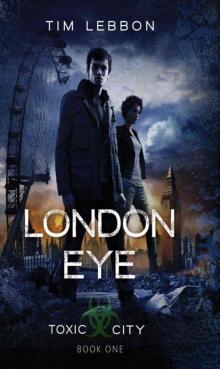 London Eye: 1 (Toxic City)
London Eye: 1 (Toxic City)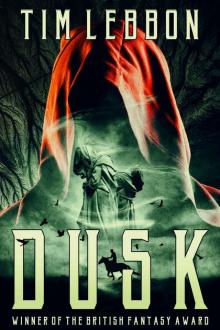 Dusk: a dark fantasy novel (A Noreela novel)
Dusk: a dark fantasy novel (A Noreela novel)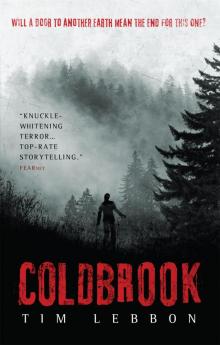 Coldbrook
Coldbrook Alien
Alien Dusk
Dusk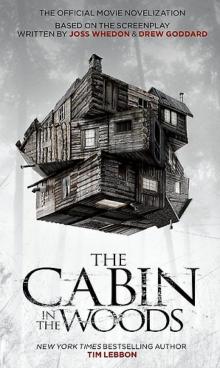 The Cabin in the Woods
The Cabin in the Woods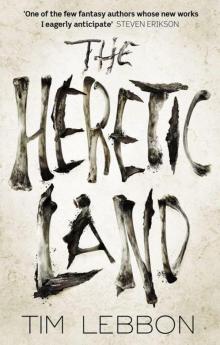 The Heretic Land
The Heretic Land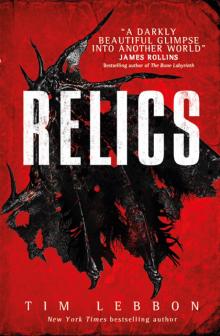 Relics
Relics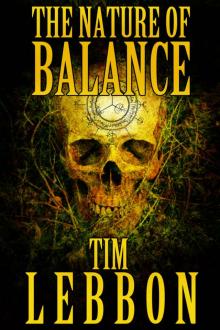 The Nature of Balance
The Nature of Balance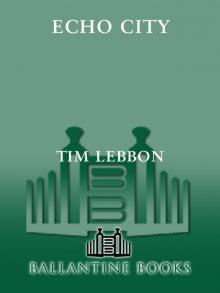 Echo City
Echo City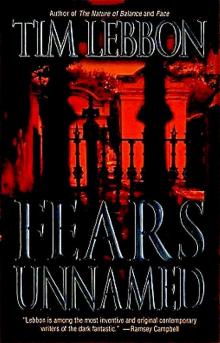 Tim Lebbon - Fears Unnamed
Tim Lebbon - Fears Unnamed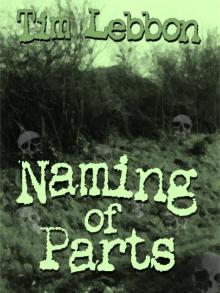 Naming of Parts
Naming of Parts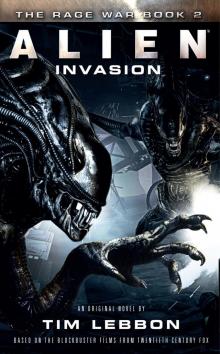 Alien--Invasion
Alien--Invasion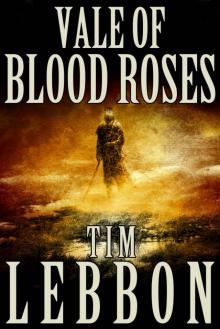 Vale of Blood Roses
Vale of Blood Roses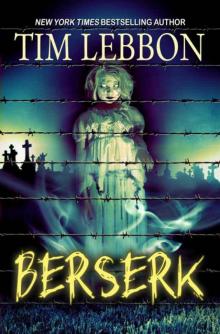 Berserk
Berserk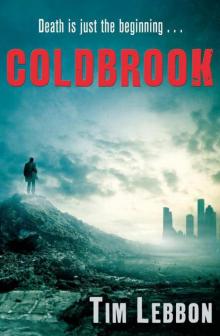 Coldbrook (Hammer)
Coldbrook (Hammer) Contagion tc-3
Contagion tc-3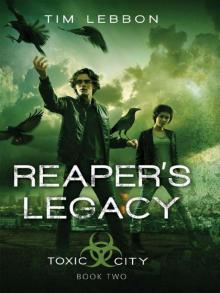 Reaper's Legacy: Book Two (Toxic City)
Reaper's Legacy: Book Two (Toxic City)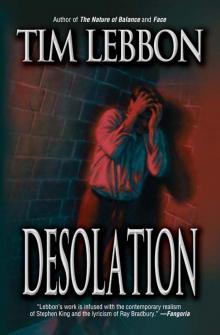 Desolation
Desolation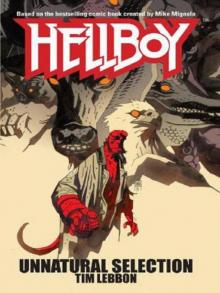 Unnatural Selection
Unnatural Selection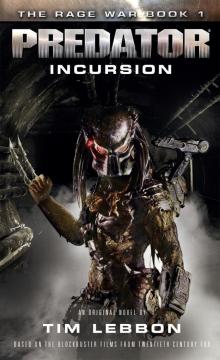 Predator - Incursion
Predator - Incursion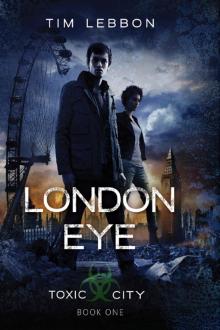 London Eye
London Eye Contagion (Toxic City Book Three)
Contagion (Toxic City Book Three) The Silence
The Silence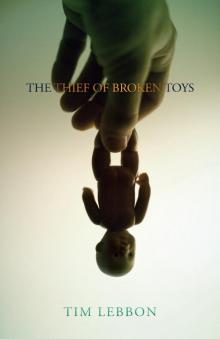 The Thief of Broken Toys
The Thief of Broken Toys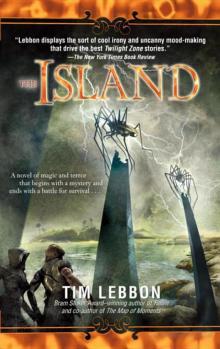 Tales of Noreela 04: The Island
Tales of Noreela 04: The Island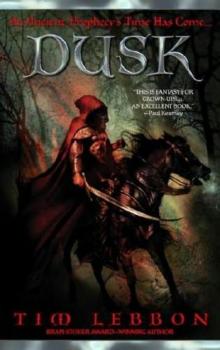 Dusk n-1
Dusk n-1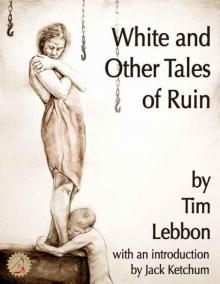 White and Other Tales of Ruin
White and Other Tales of Ruin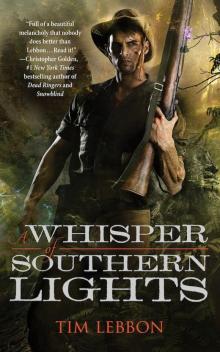 A Whisper of Southern Lights
A Whisper of Southern Lights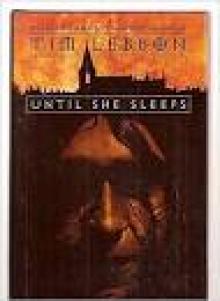 Until She Sleeps
Until She Sleeps Relics--The Folded Land
Relics--The Folded Land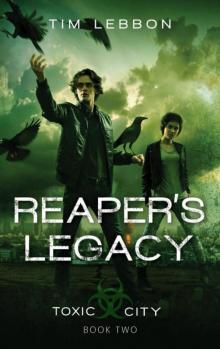 Reaper's Legacy tc-2
Reaper's Legacy tc-2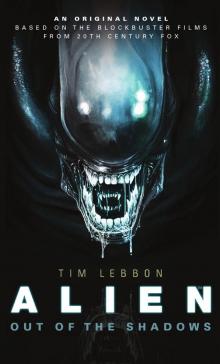 Alien: Out of the Shadows
Alien: Out of the Shadows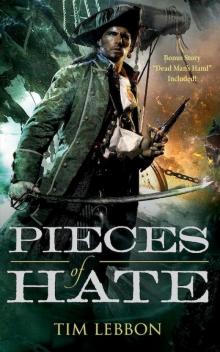 Pieces of Hate
Pieces of Hate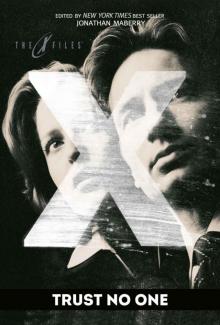 X-Files: Trust No One
X-Files: Trust No One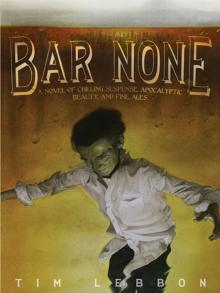 Bar None
Bar None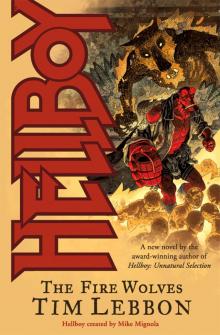 The Fire Wolves
The Fire Wolves